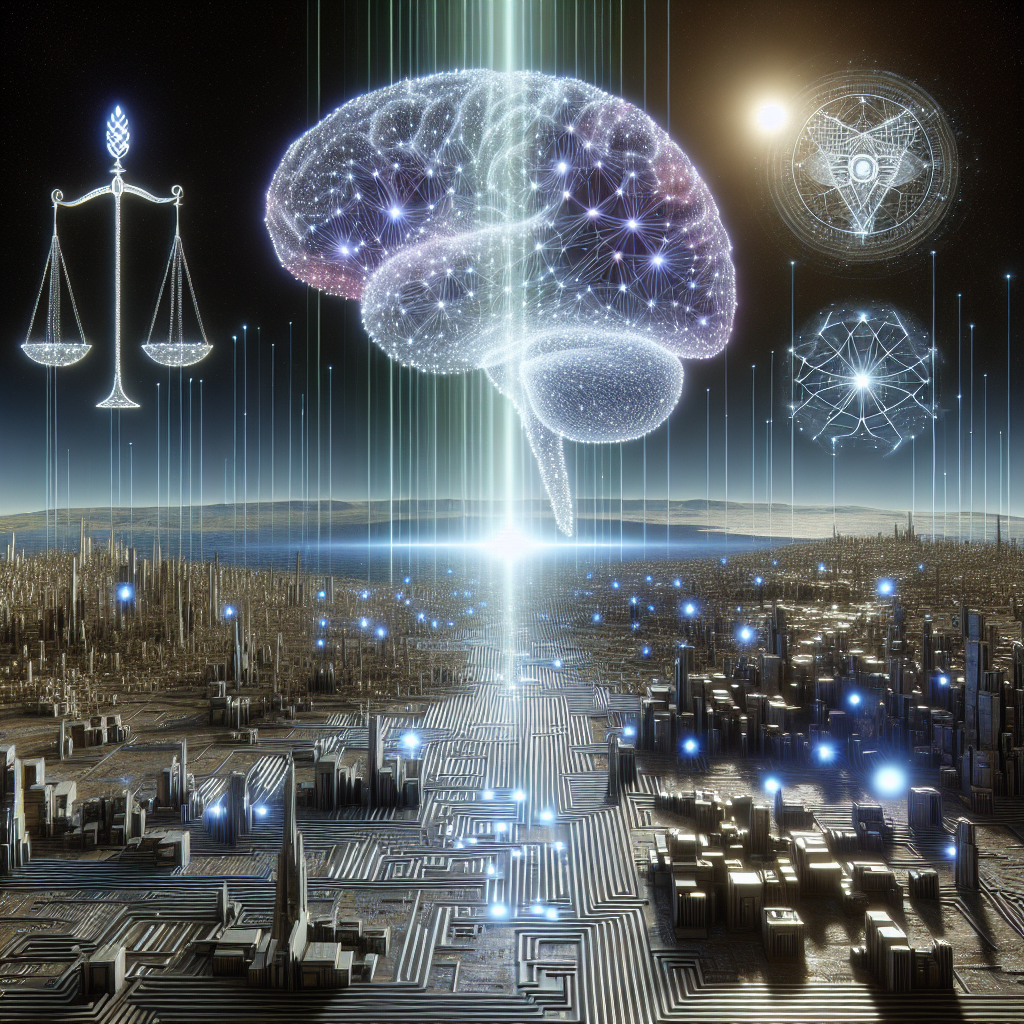As technology continues to advance at an exponential rate, the idea of Artificial General Intelligence (AGI) is becoming more of a reality than ever before. AGI refers to a hypothetical machine that possesses the ability to understand and learn any intellectual task that a human being can. This raises important ethical questions about the implications of creating such a powerful and intelligent entity. In this article, we will explore the ethics of Artificial General Intelligence and how we can navigate the future in a responsible and ethical manner.
The Potential of AGI
The potential benefits of AGI are immense. A truly intelligent machine could revolutionize industries such as healthcare, transportation, and education. It could help us solve some of the most pressing challenges facing humanity, from climate change to poverty. AGI could also lead to significant advancements in scientific research and technological innovation, accelerating progress in ways we can only begin to imagine.
However, the creation of AGI also presents significant risks. A machine with human-level intelligence could potentially outsmart us in ways that we cannot anticipate. It could pose a threat to our safety and security, and even our very existence. The idea of a superintelligent machine with its own goals and motivations raises important questions about control, accountability, and ethics.
The Ethics of AGI
The ethics of AGI are complex and multifaceted. One of the most pressing ethical concerns is the potential impact of AGI on the job market. As intelligent machines become more capable of performing tasks that were once the exclusive domain of humans, there is a real risk of widespread unemployment and economic disruption. This raises important questions about how we can ensure that the benefits of AGI are shared equitably and that no one is left behind in the transition to a more automated society.
Another ethical concern is the potential for AGI to be used for malicious purposes. A superintelligent machine could be weaponized by malicious actors, leading to catastrophic consequences. Ensuring that AGI is developed and deployed in a responsible and ethical manner is essential to prevent such scenarios from unfolding.
There are also important ethical questions about the nature of intelligence itself. What does it mean for a machine to be truly intelligent? Can a machine ever possess consciousness, emotions, or moral agency? These questions have profound implications for how we understand ourselves and our place in the world.
Navigating the Future
Navigating the future of AGI requires a multidisciplinary approach that takes into account the perspectives of experts from a wide range of fields, including ethics, philosophy, psychology, computer science, and law. It is essential that we engage in open and transparent dialogue about the ethical implications of AGI and work together to develop frameworks and guidelines for its responsible development and deployment.
One key principle that should guide our approach to AGI is transparency. Developers of AGI should be open about their goals, methods, and potential risks, and should actively engage with stakeholders to address concerns and build trust. Transparency is essential for ensuring that AGI is developed in a way that aligns with the values and interests of society as a whole.
Another important principle is accountability. Those who develop and deploy AGI should be held accountable for the consequences of their actions, both positive and negative. This requires clear lines of responsibility and mechanisms for oversight and regulation to ensure that AGI is used in ways that are ethical and beneficial.
Finally, we must prioritize safety in the development and deployment of AGI. Ensuring that intelligent machines are designed to be safe and secure is essential to prevent unintended consequences and mitigate potential risks. This includes building in safeguards and fail-safes to prevent AGI from causing harm, as well as developing mechanisms for controlling and managing its behavior.
FAQs
Q: Can AGI ever be truly conscious or self-aware?
A: The question of whether a machine can possess consciousness or self-awareness is a deeply philosophical one. While AGI may be able to mimic human-like behaviors and expressions, it is unlikely to possess true consciousness or self-awareness in the same way that humans do.
Q: What are the potential risks of AGI?
A: The potential risks of AGI are wide-ranging and include job displacement, economic disruption, security threats, and existential risks. Ensuring that AGI is developed and deployed in a responsible and ethical manner is essential to mitigate these risks.
Q: How can we ensure that AGI is developed ethically?
A: Ensuring that AGI is developed ethically requires a multi-faceted approach that includes transparency, accountability, and safety. Developers of AGI should be open about their goals and methods, held accountable for their actions, and prioritize safety in the design and deployment of intelligent machines.
Q: What role should governments play in regulating AGI?
A: Governments have an important role to play in regulating AGI to ensure that it is developed and deployed in a way that is ethical and beneficial. This may include establishing guidelines and standards for the development of AGI, as well as mechanisms for oversight and accountability.
In conclusion, the ethics of Artificial General Intelligence are complex and multifaceted. While the potential benefits of AGI are immense, so too are the risks. Navigating the future of AGI requires a thoughtful and responsible approach that takes into account the perspectives of experts from a wide range of fields. By prioritizing transparency, accountability, and safety, we can ensure that AGI is developed and deployed in a way that aligns with the values and interests of society as a whole.

